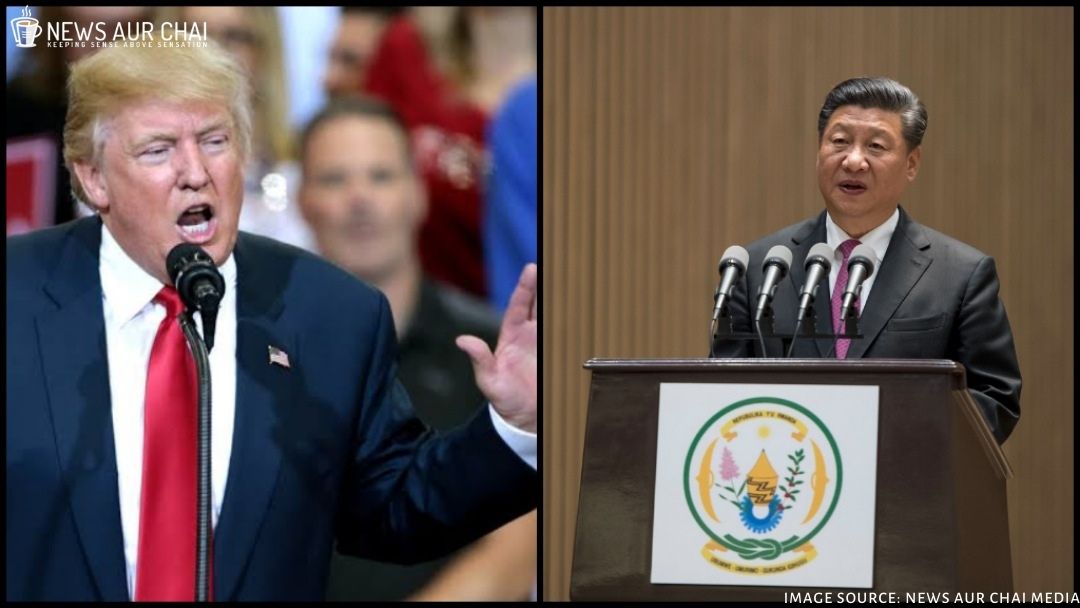
The US-China dispute is not new for the world, as both the superpowers have engaged in silent wars against one another several times. On September 22, US President Donald Trump attacked China in the UN General Assembly (UNGA) regarding the country’s role in handling the Coronavirus crisis. Trump blamed China for “unleashing the plague onto the world” in the annual UNGA in New York.
As the concern came forth amid General Assembly which apparently marks the UN 75th anniversary. As the tensions between the two superpowers began to surge, Secretary-General António Guterres warned against a “new Cold War”. The presidents of France, Indonesia, and the Philippines raised the issue of the probable threats to world peace and stability as the two countries engage in a head-to-head collision.
However, on the contrary, Chinese President Xi Jinping, in his pre-recorded virtual address to the Assembly, emphasized that his country had no intension of participating in “either a Cold War or a hot war with any country”. Instead, he called for an enhanced cooperation to contain the Coronavirus pandemic.
President Trump accused China of shutting down domestic travel in the early stages of the outbreak while allowing international flights to leave the country and infect the world. “The Chinese Government, and the World Health Organisation (WHO)–which is virtually controlled by China–falsely declared that there was no evidence of human-to-human transmission… people without symptoms would not spread the disease” and the UN must condemn China for its actions, said Trump.
Although Trump’s own record of containing the virus in America has been questionable, the President pledged to end the pandemic, while emphasizing the USA’s efforts in developing three vaccines that are now in their final stage.
Nevertheless, China’s UN Ambassador Zhang Jun has shunned the US President’s accusations calling them baseless. China also encouraged WHO to assume a leading role to launch a collaborative international initiative to combat the pandemic. It enhanced on “solidarity” in building up a global response against the virus based on scientific guidelines, while rejecting any attempt of politicization or stigmatization of the issue. President Xi also rebuked Trump by saying that “no country has the right to dominate global affairs, control the destiny of others, or keep advantages in development all to itself.”
WHO’s communications director, Gabby Stern, has declared that “no government controls us,” thereby rejecting Trump’s accusations.
Here's our interactive timeline with even more facts: https://t.co/wgXXgWyiZW
— Gabby Stern (@gabbystern) September 22, 2020
Opening the floor for debate, Gutteres said that “We must do everything to avoid a new Cold War. We are moving in a very dangerous direction. Our world cannot afford a future where the two largest economies split the globe in a Great Fracture–each with its own trade and financial rules and Internet and artificial intelligence capacities. A technological and economic divide risks inevitably turning into a geo-strategic and military divide,” though he did not directly name the two superpowers. He reproached the idea of self-interest in the face of a global crisis.
The French President Emmanuel Macron said that the countries should come together to tackle the Coronavirus pandemic and resist a world order dominated by US-China. The future must not merely be a feud between the two countries, irrespective of their incredible powers.
Indonesian President Joko Widodo emphasized that war would benefit no one, and there was no point in becoming the largest global economic power while the world is sinking. Philippine President Rodrigo Duterte highlighted the immense devastations that could occur with respect to human life and property if the rising US-China tensions culminate in a nuclear war.
On September 10, Kerry Brown, Director of the Lau China Institute and Professor of Chinese Studies, King’s College, London, put forth a testimony regarding the current US-China relationship and how it will impact the world.
This is the testimony given to the US-China Security and Economic Commission, held yesterday, and now all online, on the current challenges of US China relations, and the ways they impact on everything and everyone else: https://t.co/INwe3vFhbr
— Kerry Brown (@Bkerrychina) September 10, 2020
Throughout the year, the tensions between the US-China have been building upon several issues starting from trade relations, digital and technological sector, Coronavirus management, Chinese claim to the South China Sea, and others. Whether this bone of contention translates into an actual war and the severity of its consequences is much feared and highly debated at various spheres globally.






One Comment